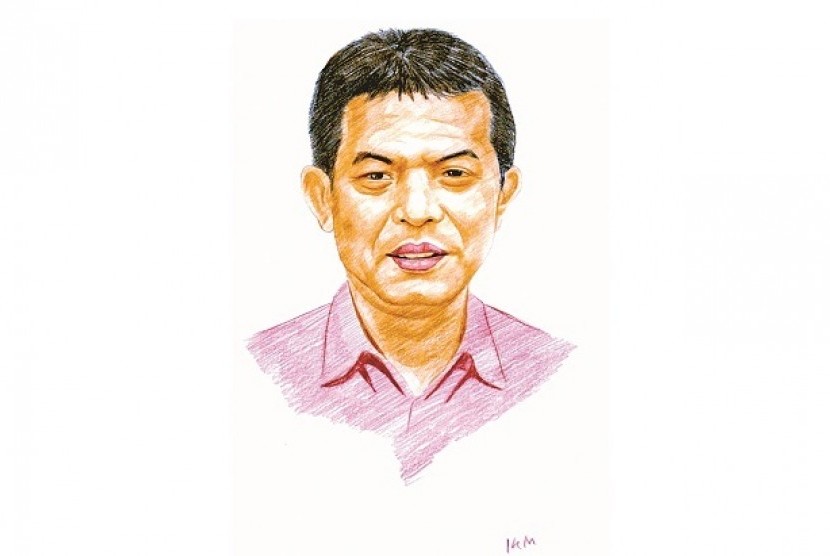By Ikhwanul Kiram
A couple of weeks ago tension occurred between new president of Egypt, Dr Mohammed Mursi and Sheikh of Al Azhar Dr Ahmad Tayyib. This all happened because Sheikh of Al Azhar was offended by the lack of respect when he attended President Mursi’s inauguration in Cairo University on June 30. Usually, in every state event and according to state protocols, Sheikh of Al Azhar (Grand Sheikh) always placed on the honorary chair on the VVIP row, a clear sign for very-very important person.
But when Mursi’s inauguration as Egyptian first president elected by democracy, unfortunately in the VVIP row there was no reservation under Sheikh of Al Azhar. Finally Sheikh of Al Azhar sat at the back row among other citizens, with hope there would be officials to come and ask him to sit on VVIP seat. But, after few minutes of waiting and nobody asked him to, he then departed before President Mursi gave his speech.
According to Sheikh of Al Azhar, his decision was not personal issue as Ahmad Tayyib. But to uphold high Al Azhar institution including all ulamas, professors, lecturers, teachers, thousands of students, and al Azhar alumni, domestic or abroad. Luckily, the tension did not last long. Knowing there was a problem with Sheikh of Al Azhar, Mursi quickly called and apologized, although it was not his fault whatsoever.
Yes, Al Azhar in these past few months, since the fall of President Hosni Mubarak on January last year to be exact, was on its process of repositioning. It was no longer become the stamp of government, but now back to be institution of education, social-culture, and independent religion. The oldest institution of religion and Islamic education, since built by Fatimiyah Dynasty on 361 Hijriyah (975 C), always stood on the front guard on educating ummah (or the people) and developing moderate and tolerant Islamic da’wah.
I’m saying, “on its way to bring back its position” because since Egypt achieved its independence and became a republic in 1953, Al Azhar has no longer been independent. President Gamal Abdul Nasser has made this institution under state control. Sheikh of Al Azhar who was the highest official in this institution appointed by the president and his position was ministrial-level. This policy then continued by Anwar Sadat the Hosni Mubarak.
It became a common phrase if then Al Azhar often being called as government stamp, exactly the same as Indonesian Council of Ulama (MUI) during the New Order regime. Moreover, when people revolution in Egypt was getting strong on overturned Hosni Mubarak’s regime, Al Azhar and its ulamas acted passive. They never went down to join the people in Tahrir Square. Then Al Azhar has completed its reputation as a stamp of Mubarak’s regime.
But, after the Mubarak step down, the ulamas incorporated in Majma Bukhuts Al-Islamiyah (Majmak) realized Al Azhar had collapsed. They quickly returned Al zhar’s position as an independent and prestigious institution. Laws about Al Azhar were immediately changed.
Now, Al Azhar’s Sheikh no longer appointed by president but chosen amongst all ulamas incorporated in Majmak. I noted two phenomenal issues done by Al Azhar since its change of status the last one and a half year. First, fatwa which allowed people in Islamic countries to do rallies. Including rally against authority considered dzalim, for example Basher al-Assad’s regime in Syria. With conditions, as stated on Atsikatul Azhar (Al Azhar’s documents), the rallies must be performed peacefully and armless.
But, if the authority regime kept on attacking, the people can strike back to survive, including with arms as necessary. Such fatwa was definitely a brand new thing which was impossible to issue during Mubarak’s regime. Second, affirmation for Al Azhar as Islamic bastion of moderation. This affirmation was delivered by Al Azhar approaching Egypt’s drafting on new constitution.
In Watsikatul Azhar stated that chapter two on old constitution did not need for alteration, which was Mabadius Syariah Al Islamiyah hiya al masdaru al raisi lit tasyrii (sharia foundation is the ultimate source on forming constitutions).
Previously, a number of Egyptian primary political forces which now is dominated by Salafi and Ikhwanul Muslimin (Islamic Brotherhood) – demanded chapter two in old constitution to be altered as As Syariah Al-Islamiyah for constitution ultimate source. It was to erase Mabadi-us Syariah to just As Syariah.
According to representative of churches, such changes would turn Egypt into Islamic state. Therefore, they made a threat to walk out of new constitution drafting team membership. The same threat also came from other groups, such as liberals, Nasirism (follower of Gamal Abdul Nasser), military, and old regime group (Mubarak and Sadati’s regime) which often called as Fulul.
In the middle of such dynamic political heat, Al Azhar then gave middle ground, which was proposing to leave for chapter two as it was. According to Al-Azhar, constitution was a mean to attach and unite the nation. It was just media, the most important thing is the content.
The middle ground offered by Al Azhar then what might seem accepted by Egyptian groups in drafting the new constitution. Yes, the middle ground. Or what others often called by moderate. Religion term called it ummatan washaton. It was not liberals that worship individual liberation. It was also not conservatives that viewed every single thing from their own point of view. Such Islamic moderate term which now becomes Al Azhar primary agenda in the world, through its alumni spread all around the world.
Translating: Indira Amaranti


